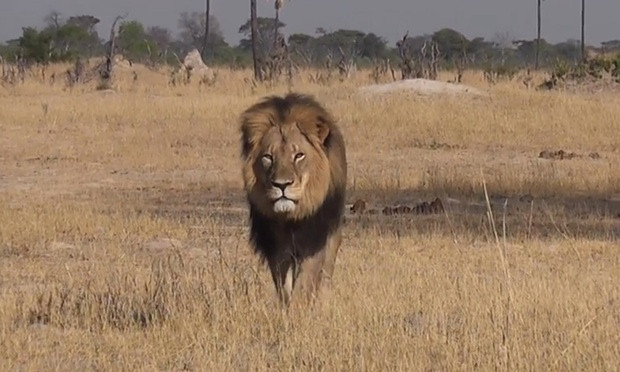Cecil the Lion: Zimbabwe lifts big game hunting ban after only two weeks

Zimbabwe has lifted a ban on big game hunting, just two weeks after it came into effect following the killing of Cecil the Lion, officials said.
The country suspended hunting in an area surrounding Hwange National Park, which Cecil was lured from before being shot dead by US dentist Walter Palmer, then being skinned and beheaded.
However, the ban has now been lifted in all but the farm where Cecil was killed, and a few other areas where animals have been killed illegally, parks spokeswoman Caroline Washaya-Moyo told NBC News.
She said that the bans still in place would be reviewed following the trial of Theo van Bronkhorst, a professional hunter, who was Palmer's guide when hunting Cecil. Palmer claims to have believed he was in possession of all of the correct permits and to be participating in a legal hunt when he killed Cecil.
Washaya-Moyo said that anyone found guilty of poaching would be barred from gaining a hunting permit for life "as they tarnish the image of the hunting industry, the authority and the country at large," adding that "their actions border on economic sabotage".
She said that hunts would now be subject to stricter rules, and hunting with bows forbidden unless the hunter had express permission from parks authorities to use the weapon.
Hunters will have to be accompanied by parks staff at all times, and submit detailed reports of kills, she said.
The decision comes after a meeting between parks authorities and representatives of the hunting industry last week.
Critics have called for big game hunting to be banned in the wake of the death of Cecil, a much-loved tourist attraction. Defenders of the practice argue though that big game hunting is essential for conservation projects.
The International Union for the Conservation of Nature claims that big game hunting is neither economically nor socially beneficial, contributing 0.4 to South Africa's GDP, but with hunting reserves occupying more than 14% of the country's land.
Brent Stapelkamp, who leads the research group which studied Cecil on the reserve, said in an interview with Sky News that though he did not think big game hunting should be banned, hunting for lions should be banned.
© Copyright IBTimes 2025. All rights reserved.




















